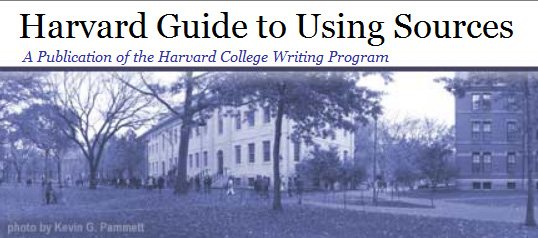| Aug 31, 2016 | Introduction to the scope, character and requirements of the course. An overview discussion of topics to be covered and an introduction to how to get access to the related resources for each course session. | |||||
| Assigned Reading: | ||
| [no reading assigned for the first class session] | ||
| Week 1 -- Resources and Assignments | ||
| Sept. 7, 2016 |
All living species live in ecosystems. No organism can live apart
from an environment, and the ecosystem can be understood as the ensemble
of organisms and the environments needed to sustain them. Environmental
ethics -- if it is to be more than a simple academic exercise in logic
-- needs to be grounded in a firm understanding of the structure and function
of ecosystems. This class will outline some of the fundamental characteristics of ecosystems and emphasize basic concepts of ecology that will serve as a foundation for further discussions of ethical behavior in an ecosystem. |
|||||
| Assigned Reading: | ||||||||
|
||||||||
| Week 2 -- Resources and Assignments | ||||||||
| Sept. 14, 2016 |
All societies possess at least some form of ethical reasoning, and often
many conflicting systems. Ethical systems -- like linguistic
systems -- are a "built in" feature of human cultural life. Ethics
have to do with people think "ought to be done," and all
societies struggle with the tension between the way things are
and the way they think they ought to be. Yet although the existence of ethical systems is universal, individual ethical systems themselves-- like languages -- are far from universal. We are presented with several questions to resolve: Where do societies get their sense of what "ought to be?" How is it possible to compare different ethical systems? If there is no such thing as a single "universal" ethic, are there nevertheless common elements in all ethical reasoning? |
|||||
| Assigned Reading: | ||||||
|
||||||
| Week 3 -- Resources and Assignments | ||||||
| Sept. 21, 2016 | A number of thinkers and writers have contributed to the development of thinking about environmental ethics, and it is worth considering some of their specific contributions. Aldo Leopold, wrote his influential Almanac nearly sixty years ago -- before there was much consciousness of humans acting as destructively as we now know they can in an ecosystem. What relevance can his observations possibly have for us today? |
|||||
| Assigned Reading: | ||||||||||||||||||||||
Recommended
|
||||||||||||||||||||||
| Week 4 -- Resources and Assignments | ||||||||||||||||||||||
| Sept. 28, 2016 |
Although some writers seem to transcend their circumstances while considering
issues of environmental ethics, most thinkers are thoroughly grounded
in the conditions of a particular time and place. This is also true
of cultures as a whole. The values of a culture are "artifacts"
of historical circumstance and collective experience.
It is important to keep this in mind in assessing statements about "what ought to be done" to or with the land. The contemporary concern for land and resource management comes into play only after a particular history of colonial expansion and imperial domination that has characterized global history for the last five hundred years. What impact does this history have upon statements of environmental ethics? Should the sensitivities and sensibilities of the "First Nations" be taken into account in developing contemporaty environmental ethics? With the recent history of colonialism in mind, what is an appropriate "baseline" for ethical judgments about behavior in the environment? |
|||||
| Assigned Reading: | |||||||||||||||
|
|||||||||||||||
| N.B. - Statement of Research Intent is due - to be submitted in class or, for distance learners, via the course "Assignment" dropbox. | |||||||||||||||
| Week 5 -- Resources and Assignments | |||||||||||||||
| October 5, 2016 | The United States government owns a considerable amount of land throughout the entire United States. How should this public land be managed? What are the historical patterns of mining, timber and grazing practices on public lands? Many of these practices were put in place over a century ago. Should these practices be reformed? If so, according to what principles should these lands be managed? | |||||
| Recommended Reading: | |||||||||
|
|||||||||
| Week 6 -- Resources and Assignments | |||||||||
| October 12, 2016 | One of the most intensive uses of privately held land in America is that involved with agriculture. How have agricultural lands been managed in the past? What are the factors that lead farmers to manage their lands poorly? What affect has the changing structure of American agriculture had upon land management in agriculture? | |||||
| Assigned Reading: | |||||||||||||
|
|||||||||||||
| October 19, 2016 | From their earliest archeological remains, humans have been identified by their garbage piles. In the industrial and nuclear era some forms of human waste have left toxic and lethal legacies on the land. How should these wastes be managed? Who should bear the brunt of these residues? What the environmental justice issues reflected in waste placement and management? | |||||
| Assigned Reading: | |||||||||||||||||
|
|||||||||||||||||
| Week 8 -- Resources and Assignments | |||||||||||||||||
| October 26, 2016 | Land use constitutes an important component of the hydrological cycle. Land management practices profoundly effect the quality of both surface and ground water. Since these two sources of water provide virtually all the water available for industrial use and human consumption, land management practices will largely determine the nature of both localized and regional water crises. What responsibilities does society have to manage "wetlands"? or underground "aquifers"? How can changes in land management practices effect current and future generations? | |||||
| Assigned Reading: | |||||||||||||||
|
|||||||||||||||
| Week 9 -- Resources and Assignments | |||||||||||||||
| November 2, 2016 | Some resources are by nature fluid, and for that reason, they cannot be adequately understood as simply localized assets. Land management decisions in some specific regions affect the health of oceans and the composition of the global atmosphere upon which the whole world community depends for its well being. How should land management principles be crafted to preserve and protect the global commons of air, oceans, fisheries and forests? | |||||
| Assigned Reading: | ||||||||||||||||||||||||||
also, please read:
|
||||||||||||||||||||||||||
| Week 10 -- Resourcs and Assignments | ||||||||||||||||||||||||||
| November 9, 2016 | Scientists who are aware of the way in which healthy ecosystems function have been emphasizing that changes in land management practices can have profound public health implications. In the long run it is widely acknowledged that the health of human populations rests upon the health of the underlying ecosystems upon which they depend. Abrupt or even gradual changes in land management practice over time can lead to the rapid growth of vector species or the rapid disappearance of keystone species, causing massive public health crises for humans or their domestic animals. . | |||||
| Assigned Reading: | ||||||||
|
||||||||
| November 16, 2016 | ||||||
| Assigned Reading: | ||||||||
|
||||||||
| Recommended Reading: | ||||||||
|
||||||||
| Week 12 -- Resources and Assignments | ||||||||
| Nota Bene - Remember that your papers should contain different levels of analysis,
elaborating:
A Problem - the topic you are investigating should present some kind of problem,
dispute or dilemma. Your paper ought, then, to assess the “adequacy” of the contending ethical principles. Finally it should conclude with a description of The Policy Recommendations you would offer for the problem at hand along with a discussion of the ethical principles that you feel make this option the most compelling you can think of. In writing your paper, please make sure to conform to the best writing practices as outlined in the student guide booklet, entitled: Harvard Guide to Using Sources The Chicago Manual of Style Online & the: Chicago-Style Citation Quick Guide In addition you may wish to draw upon: |
| November 30, 2016 |
Numerous international efforts have been launched to articulate and codify
ethical principles of sustainability. These include principles adopted
at the first global environmental summit known as the United Nations
Conference on Environment and Development (UNCED), held in Rio de Janiero
in 1992. In addition, the Coalition for Environmentally Responsible
Economies (CERES) has drawn up a list of ten principles, and the international
Earth Charter movement has developed others that it will seek to place
before the United Nations in 2002. How can these efforts be assessed? What is their value? What can be said to be "fair" or ethically justified given the history of global development until the dawn of the 21st Century? |
|||||
| Assigned Reading: | ||||||||
|
||||||||
| Suggested Reading: | ||||||||||||||
|
||||||||||||||
| Week 13 -- Resources and Assignments | ||||||||||||||
| December 7, 2016 |
|
||||||||||||||||||||||||||
|
|||||||||||||||||||||||||||
| Week 14 -- Resources and Assignments | |||||||||||||||||||||||||||
[ Note Bene:
+
All Final Research Papers are Due in Class |
|||||||||||||||||||||||||||
| December 14, 2016 | In addition to centralizing, standardizing and mechanizing trends in the evolution of global agriulture, we are also beginning to see counter trends on a local basis. Some of this impulse emerges from a recognition that current global trends are destroying the topsoil around the world, and the response has been to re-examine the fundamental mechanisms of restoring and maintaining soil fertility. Another major impulse for reform has emerged from a growing awareness that the world's increasingly petro-intensive food system is currently designed primarily for delivering profit to large corporate entities rather than providing healthy or nutritious food to those who need it. We will consider the approach to two specific alternative approaches -- one focused on restoring foil fertility and the second focusing upon healthy and sustainable food systems.
|
|||||||||||
| Week 15 -- Resources and Assignments | |

